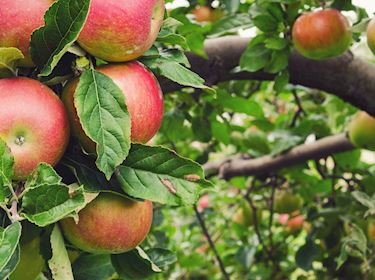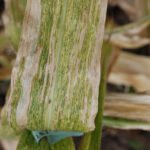By Rogers Aghan, March, 1, 2023, Roelf Pienaar, Tru-Cape’s managing director has confirmed that the outlook of pome fruit remains uncertain this season. Different factors continue to undermine the financial visibility of producers thus leading to the wavering possibility of a terrible season for pome fruit producers in South Africa.
He reiterated that pome fruit production had earlier seemed optimistic, thanks to convenient climatic conditions, which had led to record volumes during the start of 2022. Albeit, the Russia-Ukraine war had influenced the effects on markets, logistics, and the economy, which had been initially caused by the Coronavirus pandemic two years ago.
Pienaar explained that there are many difficulties that will be contained by efforts to get the right fruit of fine quality to the proper market, thus ensuring control over the situation.
Hortgro estimated that exports of apples could go down by 1% this season from about 45.3 million (12.5kg-equivalent) cartons recorded previously to 44.8 million cartons this season.
Pear exports were anticipated to drop 3% from 21.2 million to 20.6 million cartons this season compared to the last.
Tru-Cape now approximates production is down 8% across the board based on data gathered by producers in the region attributed to damage in Langkloof and Ceres caused by hail.
Pienaar added that producers also had to withstand rising costs and inflation, making production more challenging.
Load-shedding was also contributing to the burden.
“It is still too early to estimate the cost of load-shedding on Tru-Cape and its farmers this season, but we are talking about at least millions of Rands.” Pienaar reiterated.
He said that order at the Cape Town Port had significantly improved this year, but more operating hours had been lost until now this year compared to the previous year because of the hostile wind. In January, the port had lost 55 hours more than in the same period last year, and in February, 22 hours more than in the previous year at the same time.
“The winds cause vessel to get stuck for nearly fortnights and some leaving before they are packed,” Pienaar said.
Nonetheless, rising inflation, more so in South Africa’s conventional markets, including the EU and UK, imposed pressure on consumers.
“In the EU and UK, it has been observed that there is a trend towards promotional buying, which has coincided with the rise of the discount stores. The trend has also influenced a move away from managed varieties to run-of-the-mill varieties,” Pienaar said.
“I don’t think retailers will be open to any new managed varieties in the next couple of seasons and farmers will have to carefully re-evaluate their cultivar package to ensure they have the best offerings.”
He explained that producers needed to look at cultivars that were in demand on more than one market. “The trend is showing us that you could run into trouble if you produce a variety that is only in demand on one [market], such as Europe.”
Also, producers needed to replace older varieties with improved cultivars that had better color and pack-out rates to improve their income per hectare, he added.
The silver lining in all these challenges comes as a result of the hot climatic conditions in the EU which had affected the season for the EU, thus creating a high demand for South African pome fruits. The managing director also assures the producers of expansion regarding market share Africa and in the Far and Middle East.







